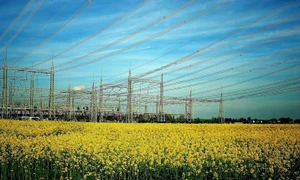
Ecuador’s National Assembly has unanimously approved a new law to boost private energy generation amid an ongoing energy crisis marked by mandated night blackouts. President Daniel Noboa submitted the law as urgent for economic reasons to encourage renewable energy solutions and private sector investment.
The law exempts renewable energy generators up to 10 MW for cogeneration or self-consumption from the requirement to revert assets to the state at the end of the concession period. It mandates that thermal generation companies present transition plans for lower environmental impact technologies.
The law also requires electricity distribution companies to gradually implement plans to replace current public lighting with LED and solar lights.
It also states that public and private banks can offer credits with preferential rates for the implementation of energy generation systems from renewable sources for self-consumption. It says that “these systems must allow beneficiaries the possibility of marketing any surplus energy generated.”
In addition, the law allows domestic companies to import natural gas to address energy shortages and lower fuel demand.
According to the latest figures from the International Renewable Energy Agency (IRENA), Ecuador had only 31 MW of installed PV capacity at the end of 2023.























